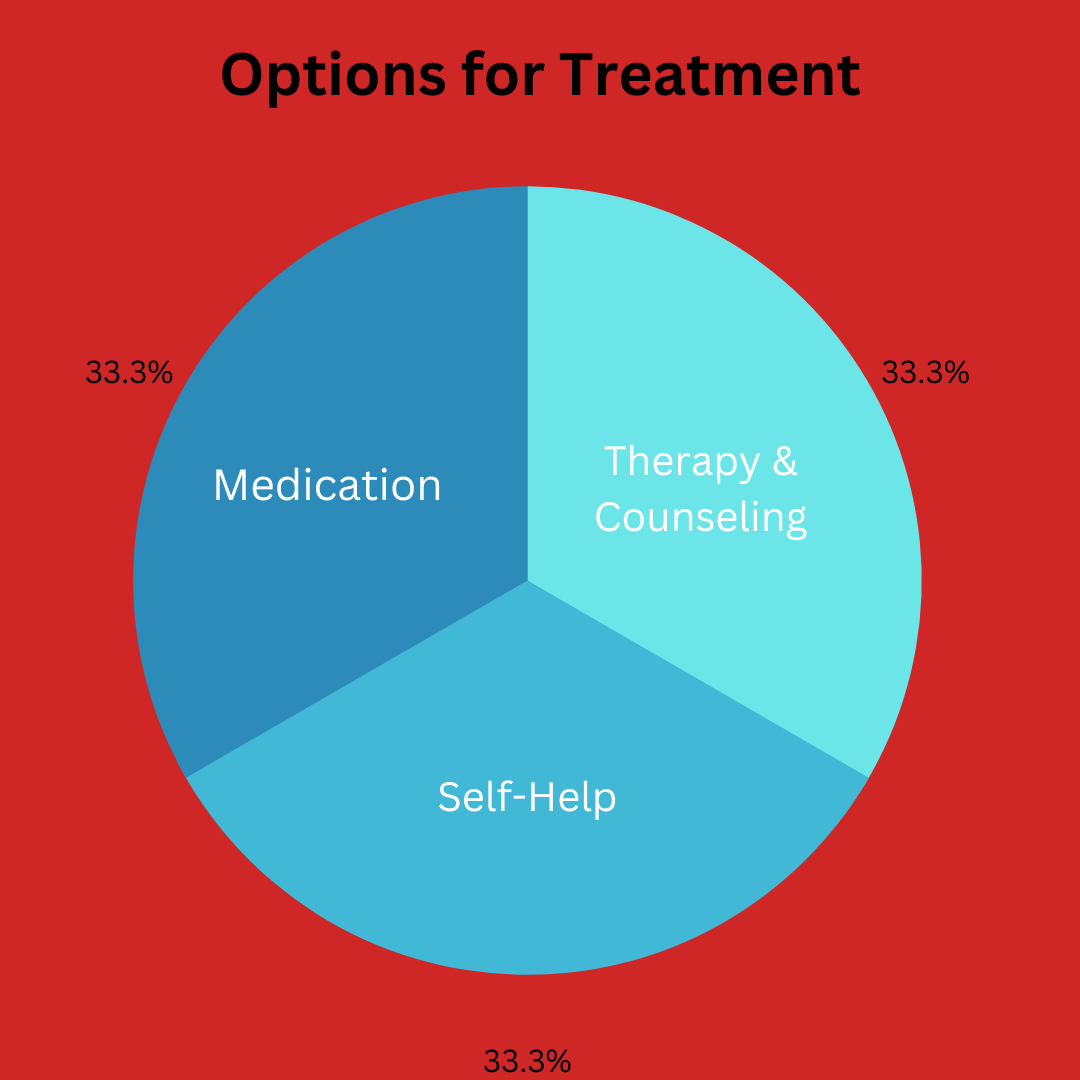![]()
Bipolar Disorder is a mental health condition that causes people to have extreme mood swings. These mood swings can go from feeling very high and energetic to feeling very low and sad. It’s a complex condition. This condition, also called manic-depressive illness, can greatly affect a person’s everyday life, relationships, and overall health. It is important for people with Bipolar Disorder and their support networks to understand the small differences and details of the condition. This content will assist you to understand the Bipolar Disorder symptoms and effective treatment.
Bipolar Disorder is a mental health condition where a person experiences extreme mood swings that are more intense than regular changes in mood. These episodes are divided into two main types: manic episodes and depressive episodes. During manic episodes, a person feels very energetic, impulsive, and extremely happy. On the other hand, during depressive episodes, a person feels very sad, lacks energy, and feels hopeless. It’s important to know the different traits of these episodes so you can better understand and handle Bipolar Disorder.
Signs of Bipolar Disorder:
A.Episodes of Mania-Traits and Indicators:
Manic episodes have specific characteristics and signs. When someone is having a manic episode, they usually have a lot of energy, feel really happy, and think highly of themselves. They might do things without thinking and take risks, like spending too much money, driving dangerously, or using drugs. Talking fast, having lots of thoughts, and not needing as much sleep are signs that happen a lot. It is important to be able to identify these traits in order to make a correct diagnosis and provide prompt help.
How it Affects Your Everyday Life:
Manic episodes can have a big impact on daily life. People who are in a manic state may have a hard time staying focused, which can make it difficult for them to do well at work or school. Being impulsive can put a lot of pressure on relationships, and doing risky things can lead to problems with the law or money. Moreover, when you don’t get enough sleep, it can make you feel tired and drained, which can impact how well you function both physically and mentally.
Depressive episodes-Traits and Indicators:
Depressive episodes are periods of time when someone feels very sad and down.
When someone with Bipolar Disorder has a depressive episode, they feel really sad, hopeless, and lose interest in things they used to enjoy. Common signs include changes in appetite and sleep patterns, feeling tired, and having trouble focusing. During periods of depression, people may also experience thoughts or behaviors related to suicide, which shows how serious the condition is. It is very important to be able to recognize these signs so that we can quickly help and support the person.
How it Affects Your Everyday Life:
Feeling depressed can really affect how you go about your day. Feeling sad and tired all the time can make it hard to get things done at work or school. Relationships can become difficult when people start avoiding social activities. Everyday tasks can become difficult, and taking care of oneself might be forgotten. It’s important to understand how depressive episodes affect people so that we can create treatment plans that help with their emotions and daily life.
Getting a Diagnosis and Finding Help
Getting a professional diagnosis is really important for effectively managing Bipolar Disorder. Mental health professionals who have received training use a set of standard criteria to evaluate symptoms. This helps them accurately identify the disorder. Bipolar Disorder is a complicated condition that needs a careful evaluation because its symptoms can be similar to other mental health problems. Getting a professional diagnosis is important because it helps us understand what’s going on and allows us to create a treatment plan that is specific to your needs.
**Encouraging People to Ask for Help and Support from Their Loved Ones** It’s really important for people with Bipolar Disorder to get help. It’s a big part of their journey to getting better. The first thing we need to do is change the way people think about mental health. Having friends and family around is really important because they help create a supportive environment where people can talk openly. Recognizing the difficulties that people with Bipolar Disorder go through and supporting them in getting professional help can have a big impact. Support networks should be understanding, caring, and take action to help people get the resources they need to be well.

Options for Treatment:
**Medicines for Bipolar Disorder**
Medications are commonly used to treat Bipolar Disorder. Doctors may prescribe different types of medications, such as mood stabilizers, antipsychotics, and antidepressants, depending on the specific symptoms and stage of the disorder. It’s really important for people to work closely with their doctors to find the best medicine that works well and has the least amount of side effects. It is normal to regularly check and change the medication plan as the person’s response to treatment changes.
**Therapy and talking to a counselor**
Psychotherapy, also known as talk therapy, is a helpful treatment choice for Bipolar Disorder. Cognitive-behavioral therapy (CBT), dialectical behavior therapy (DBT), and interpersonal therapy are some helpful approaches. These types of therapy help people learn about and handle their feelings, find ways to deal with difficult situations, and get better at getting along with others. Psychotherapy, when used alongside medication, is a complete treatment approach for Bipolar Disorder. It helps with both the biological and psychological aspects of the condition.
**Helping People with Bipolar Disorder**
The significance of having a strong support system. Having a strong support system is really helpful when managing Bipolar Disorder. Having friends and family around is really important because they can give us emotional support, understand us, and encourage us. Having a caring and knowledgeable support system is really important when dealing with Bipolar Disorder. It helps to overcome the difficulties that come with this condition. When people truly care and take the time to learn about the disorder, it creates a supportive environment where those who are affected feel understood and less alone in their challenges.
Here are some helpful tips for family and friends who want to provide support:
Helping someone with Bipolar Disorder requires a careful and thoughtful approach. First and most importantly, learn about the disorder to better understand its complexities. Encourage people to talk openly and honestly, without criticizing or judging them. Stay calm and understanding when someone is going through manic or depressive episodes. Help them with their daily tasks if they need it. Encourage following treatment plans and actively take part in creating a plan for staying well. Your constant support and understanding can really help improve the happiness and health of someone you care about.
- **Summary of Important Points**
In simple terms, to understand Bipolar Disorder, you need to know the symptoms, get a diagnosis from a professional, and consider different ways to treat it. The unique characteristics of manic and depressive episodes highlight the importance of using a thorough approach to effectively manage this disorder.
**Why it’s Important to Get Professional Help and How to Manage Bipolar Disorder Effectively**
In conclusion, it’s really important to highlight how crucial it is for people dealing with Bipolar Disorder to get professional help. Working together with friends, family, and mental health experts can make a big difference in managing the disorder. Keep talking to each other, make sure to take care of yourself, and remember that asking for help is a good thing. If we all work together, we can create a supportive environment where people with Bipolar Disorder can live fulfilling lives with the help they require.

